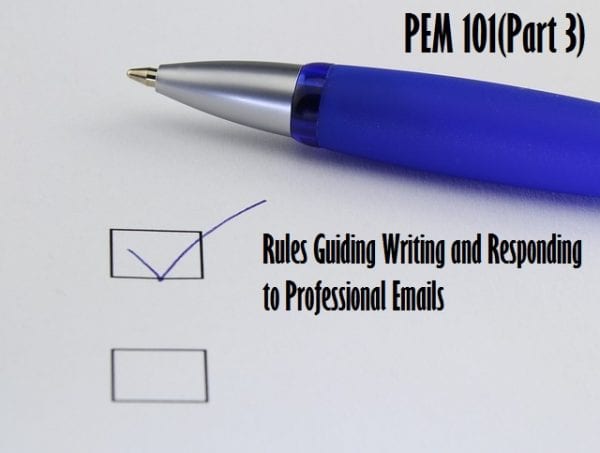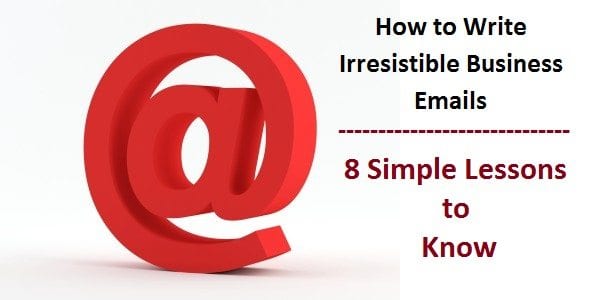It takes skill and professionalism to manage transitions in the complex professional world. Writing a two-week notice email is a crucial step in ensuring a professional exit while leaving your current place of employment.
It is beyond important that this is done professionally, as it has the ability to mar the relationship you have with the job you’re currently leaving.
I will provide you with an in-depth breakdown of the procedures needed to write an articulate and befitting two-week notice email.
Steps to Write a Two-Week Notice Email
In this section of this article, we’ll list a step-by-step guide to help you write a two-week notice email. The most important thing to bear in mind is that you do not want to gloat or appear as though you’re happy to leave. Even if you are, this should be expressed in your email.
Your email should strike a balance between being indifferent and expressing sadness at you leaving your current company.
Choose the Right Time
Timing is essential. Before sending your notice email, schedule a meeting with your immediate supervisor. This pre-email conversation demonstrates respect for their time and provides an opportunity for a candid, face-to-face discussion about your decision.
Address the Right Audience
A crucial aspect of your two-week notice email is addressing it to the appropriate recipient. Begin the email by addressing your manager using their full name and title, such as ‘Dear [Manager’s Full Name], [Manager’s Title].’ This formal approach shows professionalism and ensures your email reaches its intended recipient.
Craft a Clear Subject Line
The subject line is your first point of contact, and it should be clear and succinct. This line sets the tone for your email. For instance, “Formal Resignation: [Your Full Name]”.
Initiate with a Thoughtful Opening Paragraph
Your email should start by stating your intention to resign and indicating the exact date of your last working day. Expressing gratitude for the opportunity to contribute to the company and briefly mentioning the positive experiences you’ve had demonstrates sincerity.
For example, ‘I am writing to formally announce my resignation from [Company Name], effective [Last Working Day].’
Explain Your Reason for Resigning
Communicate the reason behind your decision to resign, keeping the tone professional and positive. Focus on highlighting how your departure is rooted in personal growth, career advancement, or a desire to embrace fresh challenges. For instance, ‘After careful consideration, I have decided to resign to pursue new challenges and further develop my skill set.’
Outline a Comprehensive Transition Plan
Showcase your commitment to facilitating a seamless transition by outlining your strategy for the forthcoming two weeks. Whether it’s offering to assist in the search for your replacement, training colleagues, or ensuring the completion of ongoing projects, your proactive approach reflects your dedication.
Convey Sincere Gratitude
Within the body of the email, convey genuine appreciation for the relationships you’ve cultivated and the opportunities you’ve been granted during your tenure. Use specific examples to showcase your contributions and leave a lasting positive impression. You can say:
‘I am grateful for the valuable experiences and the supportive relationships I have built during my time at [Company Name].’
Make sure to cite specific achievements to reinforce your contributions.
Close with Formality
End your email with a formal closing, such as ‘Sincerely’ or ‘Best regards,’ followed by your full name, like ‘Sincerely, [Your Full Name].’ This helps you maintain a professional tone.
Incorporate Relevant Attachments
If your organization mandates certain formalities, mention that you’ve appended essential documents, such as resignation letters or exit forms, to your email. A resignation letter is a formal way to end your employment with a company or establishment. This also needs to be succinctly written. It is important to familiarize yourself with the dos and don’ts of writing a good resignation letter.
Proofread
As you approach the final step of sending your email, invest time in conducting a thorough proofreading. A professionally articulated email not only emphasizes your commitment but also reinforces your reputation.
Dos and Don’ts when Writing a Two-Week Notice Email
Here are the dos and don’ts to bear in mind when writing a two-week notice email
Dos
- Be prompt. A two week’s notice will give your employer time to find a replacement and ensure your work is covered while you’re gone.
- Be professional. Use a formal tone and avoid using slang or informal language.
- Be specific. State your last day of employment clearly.
- Be positive. Thank your employer for the opportunity to work for them, and express your gratitude for the experience.
- Offer to help with the transition. Let your employer know that you’re willing to train your replacement and help with any other tasks that need to be done before you leave.
- Proofread your email carefully. Make sure there are no errors in grammar or spelling.
Don’ts
- Don’t burn bridges. Refrain from making negative comments about your employer or colleagues in your email.
- Don’t overshare. There’s no need to explain why you’re leaving your job. A simple explanation, such as “I’ve accepted another opportunity,” is sufficient.
- Don’t make demands. Don’t ask for a raise or other benefits in your resignation email. This is not the time to negotiate.
- Don’t be emotional. Avoid expressing your feelings of sadness, anger, or frustration in your email.
- Don’t be informal. Avoid using abbreviations, emoticons, or other casual language.
Tips for Writing a Two-Week Notice Email
- Start by addressing your email to your manager or supervisor.
- In the first paragraph, state that you are resigning from your position and give your last day of employment.
- In the second paragraph, thank your employer for the opportunity to work for them and express your gratitude for the experience.
- In the third paragraph, offer to help with the transition and let your employer know if there is anything specific that you can do to help.
- In the closing paragraph, reiterate your last day of employment and wish your employer well.
Is It Appropriate to Email a 2 Week Notice?
The answer to this depends on your contract. If your employee contract mandates a two-week notice, then you must give a two weeks notice. In some rare occasions, company demand more than two weeks. So, peruse your employee contract and be attentive when signing the next one.
Two Week Notice Email Template
Subject: Resignation Notice Dear [Supervisor's Name], I hope this email finds you well. I am writing to formally announce my resignation from my position as [Your Job Title] at [Company Name], effective two weeks from today. My last working day will be [Last Working Day, typically two weeks from the date of this email, e.g., November 12, 2023]. I have thoroughly enjoyed my time at [Company Name] and am grateful for the opportunities I've had to grow both professionally and personally. This decision has not been made lightly, and I have considered it carefully. I believe it is the right step for my career at this time. I am committed to ensuring a smooth transition during my notice period. I am ready to assist in training my successor and completing any pending projects. Please let me know how I can best facilitate this process. I want to express my gratitude to you and the entire team for the support and guidance I have received during my tenure here. I will miss working with all of you. Thank you for understanding my decision, and I hope that our paths may cross again in the future. Please do not hesitate to reach out if you need any further information or assistance. Sincerely, [Your Full Name] [Your Job Title] [Your Contact Information]
2 Week Notice Letter Template Google Docs
Here’s a link to a Google Docs Simply make a copy of the Doc and edit away.
2 Week Notice Email Subject
Resignation Notice: Two-Week Transition Period Formal Resignation: Two-Week Notice Notice of Departure: Last Day in Two Weeks Important: My Resignation Details
2 Week Notice Email to HR
Subject: Resignation Notice Dear [HR Manager's Name], I am writing to officially tender my resignation from my position as [Your Job Title] at [Company Name], with my last working day being [Last Working Day, typically two weeks from the date of this email, e.g., November 12, 2023]. This decision wasn't made lightly and follows careful consideration. I have had a rewarding experience working at [Company Name] and am grateful for the opportunities I've had to grow professionally. I believe it's time for a new chapter in my career, and I'm committed to ensuring a smooth transition during my notice period. I'm available to assist in finding and training my replacement and to complete any ongoing projects. I would like to express my gratitude to the entire HR team for your support during my time here. Your guidance and assistance have been invaluable. Please let me know if there are any specific procedures or paperwork I need to complete as part of this process. Thank you for your understanding, and I look forward to your guidance during this transition period. Sincerely, [Your Full Name] [Your Job Title] [Your Contact Information]
Thoughtful Two Week Notice Example Email
Subject: Resignation Notice Dear [Supervisor's Name], I hope this email finds you well. It is with mixed emotions that I submit my resignation from my position as [Your Job Title] at [Company Name]. My last working day will be [Last Working Day, typically two weeks from the date of this email, e.g., November 12, 2023]. I want to express my sincere gratitude for the support and opportunities I've had at [Company Name]. This decision was not easy, and I am deeply appreciative of the experiences I've gained here. I am committed to ensuring a seamless transition during my notice period and am open to assist in any way necessary. Thank you for your understanding, and I look forward to your guidance during this transition. Warm regards, [Your Full Name] [Your Contact Information]
Conclusion
By adhering to the comprehensive guidelines detailed in this article, you will not only ensure a seamless exit but also leave behind a legacy of professionalism and gratitude. Remember, the manner in which you conclude your journey with an organization can profoundly impact your network and professional reputation in the long run.






